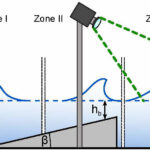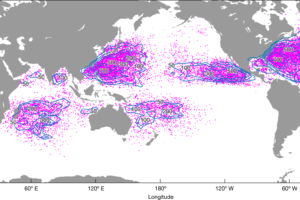One of your obligations under the Environmental Information Regulations is to publish environmental information proactively. The Regulations require you to do this in the following two ways:
- you should publish information by easily accessible electronic means; and
- you should organise your records in such a way that you can publish certain information routinely.
These obligations are separate from your duty to make information available in response to individual requests.
You don’t have to publish all the environmental information you hold. The minimum you should routinely publish to comply with your obligations under the Regulations is listed in Article 7(2) of the European Directive 2003/4/EC; the Directive which the Regulations were introduced to implement. It includes things like policies, plans and procedures relating to the environment, reports on the state of the environment, and environmental impact studies. It also includes data taken from monitoring activities and risk assessments that affect or are likely to affect the environment.
The Regulations, unlike the Freedom of Information Act, do not require you to set up a specific process to comply with your obligation to publish environmental information. Under the Act, you have a duty to maintain a publication scheme, which must set out your commitment to make certain classes of information routinely available, such as policies and procedures, minutes of meetings, annual reports and financial information. The Regulations do not require you to maintain a publication scheme, but we recommend you do so to help you comply with the requirement to publish environmental information proactively.
If you use your publication scheme to proactively publish environmental information, you should at least publish the information that falls within specific classes as set out in the ICO ‘model publication scheme’. You do not need to treat environmental information as a separate class of information. You do not have to publish information that you would otherwise refuse to disclose using one of the exceptions available under the Regulations.
Most public authorities make their publication scheme available on their website under ‘freedom of information’, ‘guide to information’ or ‘publication scheme’. If you receive a request for any information in your scheme, you should be able to give it out quickly and easily. You should make your staff aware of the information available through your publication scheme.
What are our obligations to publish information proactively under the Environmental Information Regulations?
The Regulations require you to:
- progressively make information available by easily accessible electronic means; and
- take reasonable steps to organise information relevant to your functions to enable you to publish it proactively and systematically.
This is separate from your duty to make information available in response to individual requests.
You do not have to make available or organise information electronically if it was created or collected in a non-electronic form before 1 January 2005. Also, you don’t have to make information available that you would normally refuse to disclose because it is subject to an exception in regulation 12.
What kind of environmental information do we need to publish routinely?
The minimum information you must routinely publish is listed in Article 7(2) of the European Directive 2003/4/EC, which Parliament implemented by the Regulations. This includes policies, plans and procedures relating to the environment, reports on the state of the environment, environmental impact studies and data taken from monitoring activities and risk assessments that affect or are likely to affect the environment. This may cover public registers of environmental information you maintain under another piece of legislation, your organisation’s carbon emissions data, or details about external renovation and building work. You must also publish facts and analyses of facts that are relevant and important to major environmental policy proposals.
How can we comply with our obligations to publish information proactively under the Environmental Information Regulations?
The Regulations require you to proactively publish environmental information electronically, and organise information in a systematic way. However, unlike the Freedom of Information Act, they do not set out rules for how you should meet these obligations.
The Act says you must have a publication scheme that commits you to making certain categories of information available to the public as part of your normal business activities. The Regulations do not require you to operate a publication scheme for environmental information, but we recommend you do so to help you comply with your duty to proactively publish environmental information, and for convenience and consistency.
A publication scheme’s ‘guide to information’ is a way of providing quick and easy access to your most important information – the information your customers and service users want to know. There is no reason why it can’t include the types of environmental information that you have a duty to publish routinely.
The ICO has produced a range of definition documents that should help you decide what information (environmental and non-environmental) you need to publish through your guide to information as part of your scheme. The publication scheme only covers information you already hold, so if you don’t hold any of the information specified in the classes of information, you don’t have to create it.
How should environmental information be made available?
The Regulations say you should progressively make information available to the public by easily accessible electronic means. We recommend that, where possible, you use your organisation’s website to publish information proactively. You should organise the information so that it is easy to find and searchable. You should update and add information as it is created. You need not make available or organise information electronically it if was collected in a non-electronic form before 1 January 2005.
If you are asked for information that is already available online, you can simply provide a link to it. For example, you could list relevant legislation with links to the text on the website www.legislation.gov.uk
The Regulations do not require you to provide a hard-copy version on request if the information is publicly available and easily accessible to the requester in electronic form. However, you should consider providing a hard-copy version if the individual cannot access the electronic version.
You should also be aware of any obligations you have under equality legislation, for example, to make reasonable adjustments for those with disabilities.
How should we organise environmental information for disclosure?
The Regulations say you must take reasonable steps to organise environmental information to enable you to make it available to the public. What is ‘reasonable’ depends on your organisation’s size and functions and the nature of the information held. We recommend you consider how you organise your information as part of your wider records-management processes. Please read the Section 46 Code of Practice for guidance on good practice in records management.
Can we refuse to publish environmental information?
You should list any information you hold that falls within the classes set out in Article 7(2) of the European Directive 2003/4/EC, which the Regulations were introduced to implement, or your publication scheme in your guide to information (or both), unless:
- you have archived it and it is difficult to access;
- one of the exceptions in regulation 12 applies (including if you don’t hold the information);
- it is personal information and subject to regulation 13;
- part of the document is exempt from disclosure and it would not be practical to publish the information in a redacted (edited) form. We would normally expect you to publish redacted minutes of meetings, but we accept it is unreasonable to expect you to routinely produce edited versions of other documents.
When you have decided not to publish information, it is good practice to record your reasons for this decision, in case you are questioned about this later.
Why must we publish environmental information, rather than simply respond to requests?
The Regulations require you to proactively publish information. Information rights legislation is designed to increase transparency. Members of the public should be able to routinely access information that is in the public interest and is safe to disclose.
The European Directive 2003/4/EC, which the Regulations are based on, specifies a minimum amount of information you should give out routinely. People should be able to access this information directly on the web, or receive it promptly and automatically whenever they ask.
We are not subject to the Freedom of Information Act – do we need to publish environmental information proactively under the Environmental Information Regulations?
Organisations that are subject to the Regulations but not to the Freedom of Information Act must publish information proactively only if it falls within the definition of environmental information. They do not need to maintain the model publication scheme or written guide to information required by the Freedom of Information Act.
If your organisation is subject to the Regulations alone, you will still need to identify any information you hold that is environmental and decide what you need to publish routinely. You must ensure published information is available in a systematic way, and update and add to it as necessary. It is good practice to have a process for doing this
Can we charge for access to environmental information?
The Regulations say you can charge for making information available to a requester in some circumstances. You must publish a list of charges you intend to make for environmental information, whether proactively published or released in response to a request. This should explain the circumstances in which you will make a charge and how you will calculate it.
If you provide information in hard copy, you can make a reasonable charge to cover the cost. In general, a reasonable charge may include the disbursement costs in transferring the information to the applicant and the staff time taken to locate the information. This is in contrast to the Freedom of Information Act (FOIA) where disbursements are the only charges permitted unless the appropriate cost limit is exceeded.
Under the Regulations, you cannot charge a requester for:
- access to public registers; or
- lists of environmental information; or
- access to examine information at the place you make it available (although you can make a reasonable charge for staff time needed to prepare information for inspection).
It is normally good practice for public authorities not to charge for access to information published online.
Source : ICO News











Add Comment